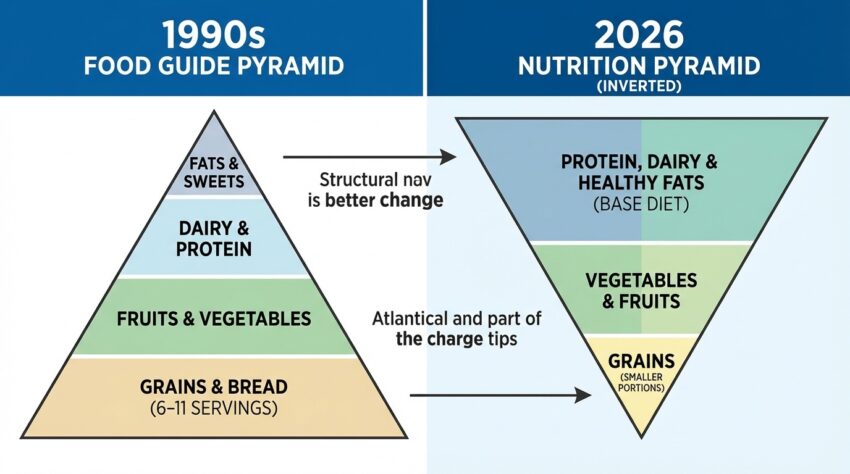The U.S. just dropped new dietary guidelines that flip the old food pyramid. Protein and healthy fats are in, processed carbs are out. Here’s what it means for managing diabetes.
مصنف: ایف ڈبلیو اے
Ozempic and Surgery: And What You Need to Know
Taking Ozempic, Wegovy, or Mounjaro before surgery? Learn why surgeons are delaying procedures, the real aspiration risks, and what the 2024-2025 guidelines say about GLP-1 medications and anesthesia.
Carbs to Take Daily If You Have Diabetes
Among the most frequent queries from diabetes patients is about the amount of carbohydrates they are required to consume every day. The response to such a query is not generic; it depends on several factors such as the type of diabetes being experienced by a patient, their medications and rates of activity, and their health…
How to Test for Insulin Resistance: A Step-by-Step Guide
Insulin resistance affects an estimated 40% of adults aged 18-44 in the United States, yet most remain undiagnosed until it progresses to prediabetes or type 2 diabetes. The challenge lies in the fact that standard blood sugar tests often appear normal while insulin levels silently climb. This comprehensive guide walks you through the most effective…
Garden Herb Yogurt Spread
A creamy, tangy yogurt spread with fresh herbs – only 3g net carbs per serving. This diabetes-friendly appetizer is ready in 10 minutes with no cooking required. Perfect paired with vegetables for blood sugar-stable snacking.
Slow-Roasted Tomato Bisque
A silky tomato soup with roasted tomatoes and fresh basil. 13g net carbs per serving with heart-healthy lycopene. This diabetes-friendly comfort food can be enjoyed warm or chilled.
Toasted Cumin Sea Bass
Pan-seared sea bass with aromatic toasted cumin crust. Only 1g net carbs and 21g protein per serving. This diabetes-friendly dinner is ready in 20 minutes with bold Middle Eastern-inspired flavors.
Mediterranean Marinated Cheese Rounds
Elegant yogurt cheese rounds marinated in olive oil and Mediterranean herbs. Only 3g net carbs with heart-healthy fats. A diabetes-friendly appetizer that’s perfect for entertaining.
Chicken Salad Lettuce Wraps
2g NET CARBS PHASE 1 Keto Low-Carb High-Protein Gluten-Free Chicken Salad Lettuce Wraps ⏱️ Prep: 15 min 🔥 Cook: 0 min 👥 Serves: 4 (8 wraps) ⚡ Difficulty: Easy A refreshing and light meal that’s perfect for a quick lunch or a healthy snack. These Chicken Salad Lettuce Wraps are packed with protein and flavor,…
Keto-Friendly Pancakes
4g NET CARBS PHASE 1 Keto Low-Carb High-Protein Gluten-Free Keto-Friendly Pancakes ⏱️ Prep: 5 min 🔥 Cook: 15 min 👥 Serves: 4 (8 pancakes) ⚡ Difficulty: Easy Start your day with a stack of fluffy, delicious pancakes that won’t derail your low-carb lifestyle. These Keto-Friendly Pancakes are made with almond flour and cream cheese, creating…









